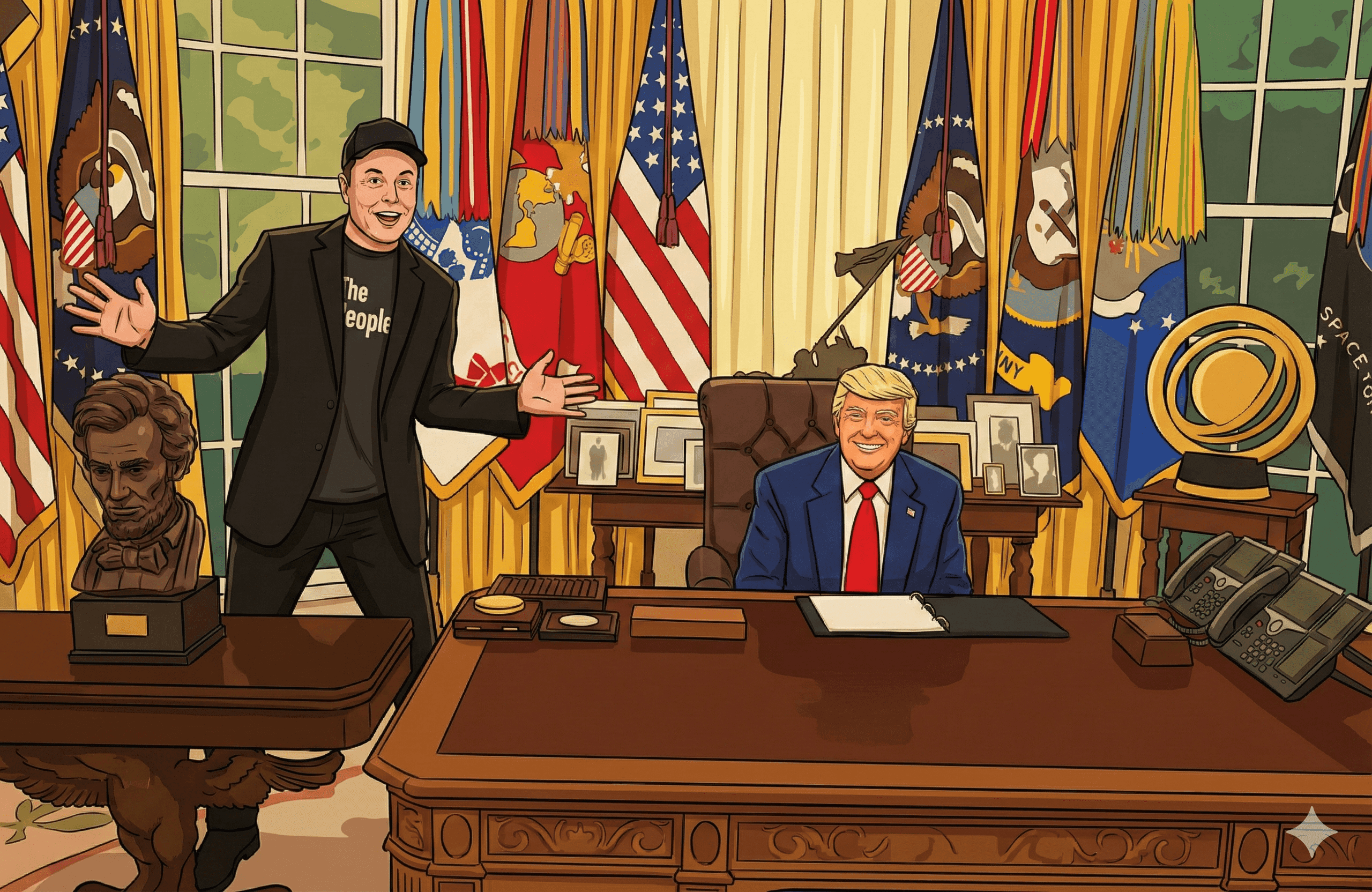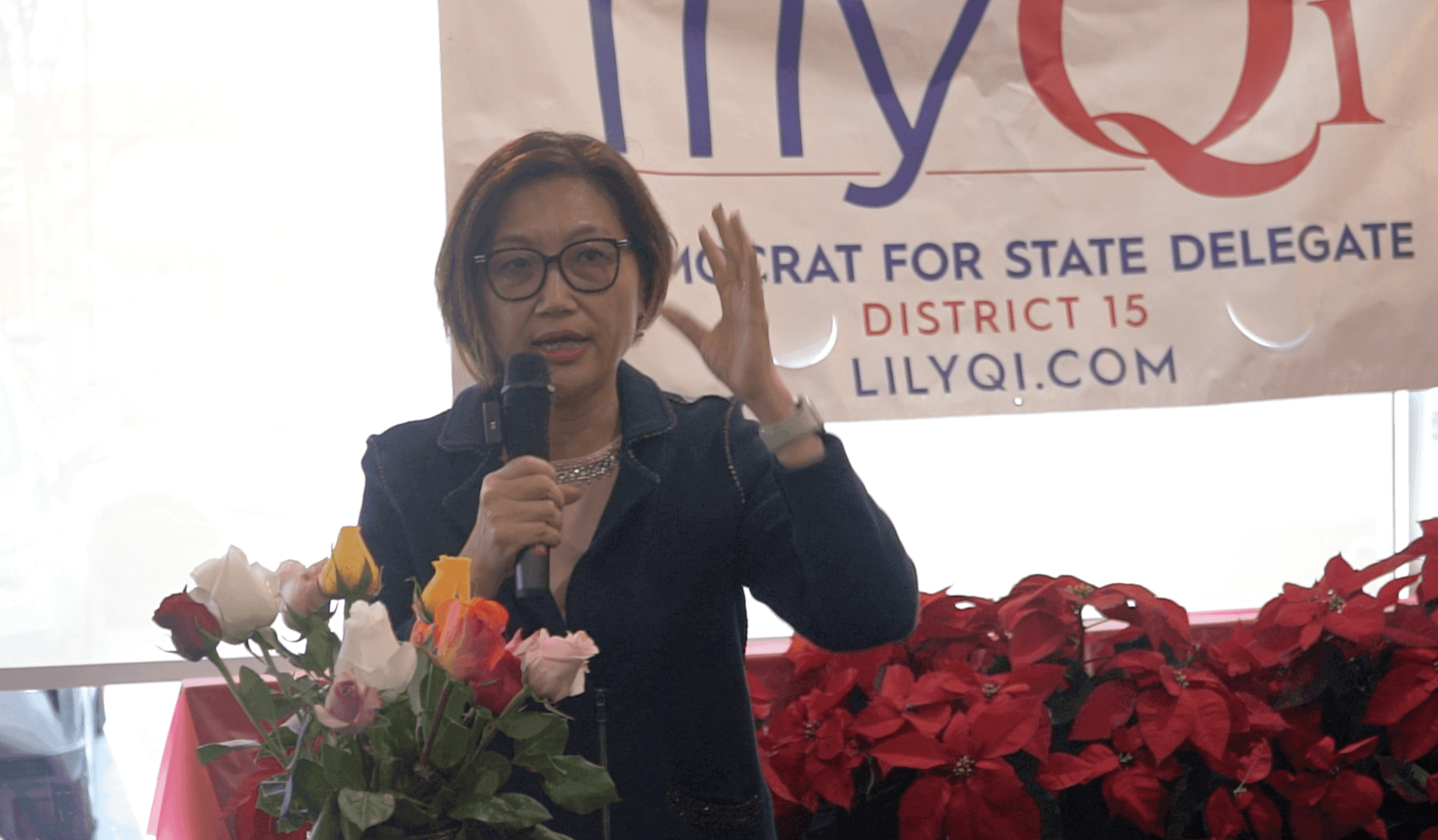Speaking Up in Congress: Yuan Foundation Brings AAPI Students into the Senate for Civic Dialogue and Political Engagement
Washington, D.C., Capitol Hill | June 16, 2025
On June 16, 2025, the Yuan Foundation held its first-ever “Student-led Dialogue” in the U.S. Senate’s Dirksen Office Building. The event brought together AAPI high school students and their families from across the country, along with staff from Senator Chris Van Hollen’s office and other congressional aides. Held in one of the nation’s key centers of democracy, the event gave students a rare platform to share policy ideas and engage directly with government officials. The dialogue shined a light on both the students’ civic awareness and the AAPI community’s growing political participation.
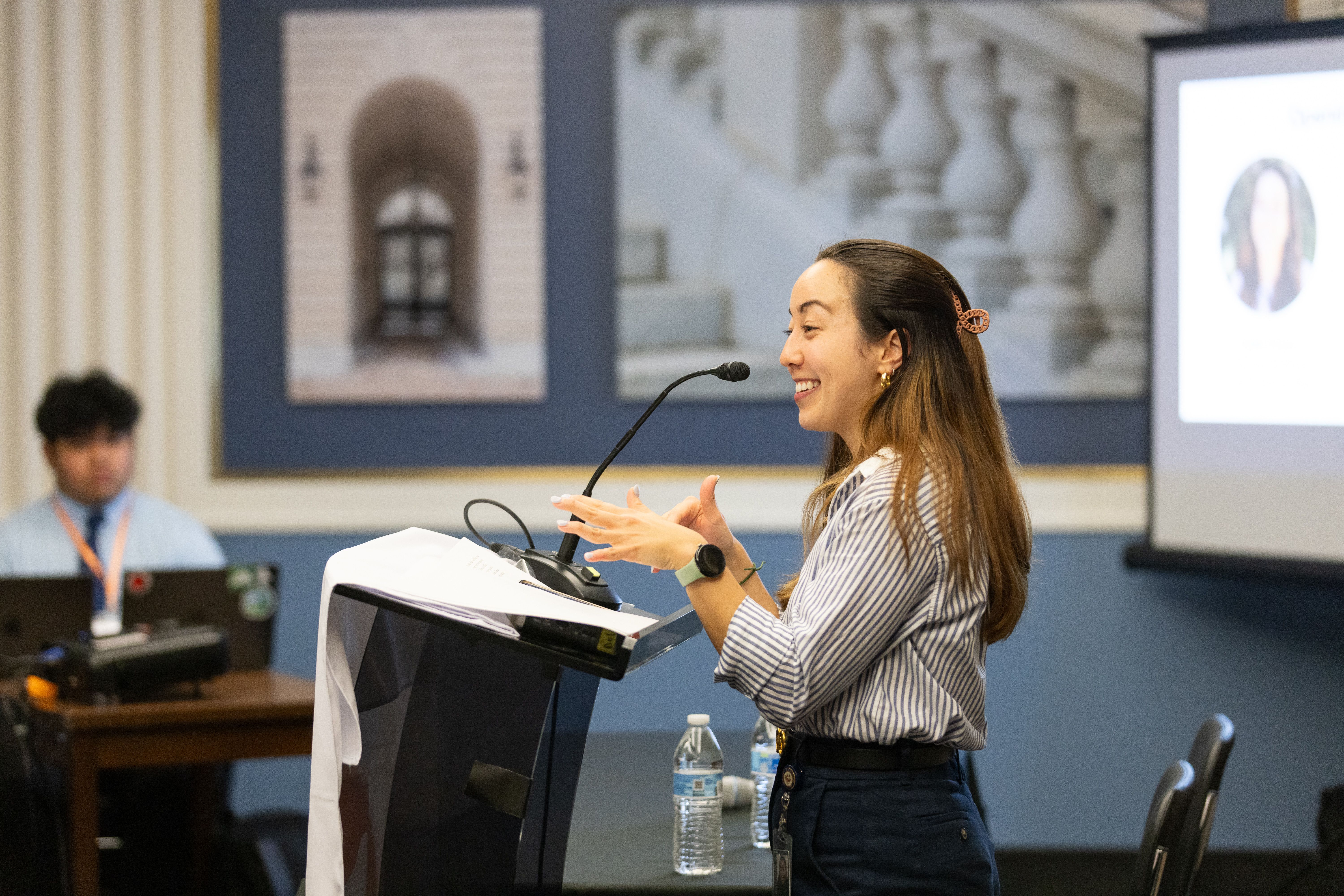
The event began with opening remarks from Judith Teruya, Executive Director of the Congressional Asian Pacific American Caucus (CAPAC). A native Hawaiian, Teruya shared her path from a working-class family to Georgetown’s McCourt School of Public Policy and eventually to Capitol Hill. She encouraged students not to limit themselves, saying:
“I didn’t come from a prominent background, but through internships and scholarships, I made my way to Congress.”
Teruya emphasized that public policy is not just a distant concept, but “a reality you have the power to shape.”
She praised the Yuan Foundation for its commitment to youth civic engagement and stressed the importance of AAPI voices in today’s political climate:
“America is made better when everyone participates. Silence is not neutrality — it is surrender.”
Her words resonated deeply with the students in attendance.
Teruya went on to explain CAPAC’s legislative efforts on language access, data disaggregation, and combatting anti-Asian hate, and described the upcoming creation of a National Museum of Asian Pacific American History and Culture. She encouraged students to see themselves as future policymakers.
She urged students to ask questions boldly and pursue every opportunity, reminding them that Congress should not be viewed as out of reach. During the Q&A, students asked relevant and thought provoking questions.
One asked: “How can young people from ordinary backgrounds compete with those who have more resources?” Teruya replied:
“Opportunities don’t knock three times. Sometimes, you have to knock first. You may not always win when you apply — but you always lose if you don’t.”
Another student asked: “How do you build influence in such a hierarchical place like Congress?” She responded:
“The most important things are respect and consistency. If you do the small things right every day, people will take you seriously.”
When asked how she navigates representation as an Asian American woman in politics, Teruya responded:
“You prove your presence by being present. Every time I walk into Congress, I’m leaving a footprint for my community.”
Her responses drew warm applause from both students and guests.
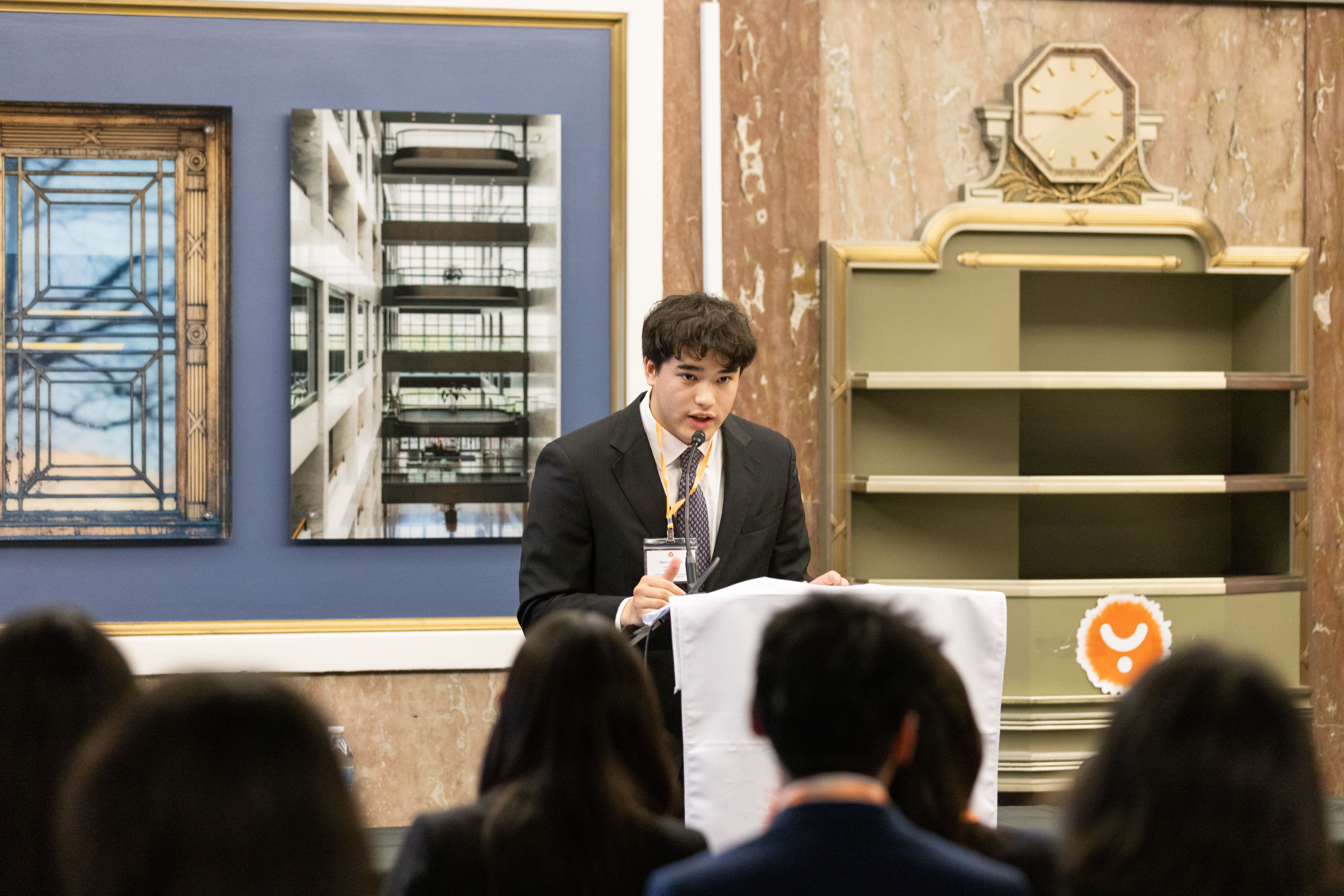
The event was moderated by Mason Chervenak, President of the Yuan Foundation Alumni Network and a student at Fordham University. He guided the discussion with professionalism, encouraged student participation, and created an open, engaging atmosphere.
The student dialogue was divided into three panels, each led by previous competition winners and focused on major policy topics:
1. Information Pollution and Algorithmic Manipulation: Who Shapes What We Know?
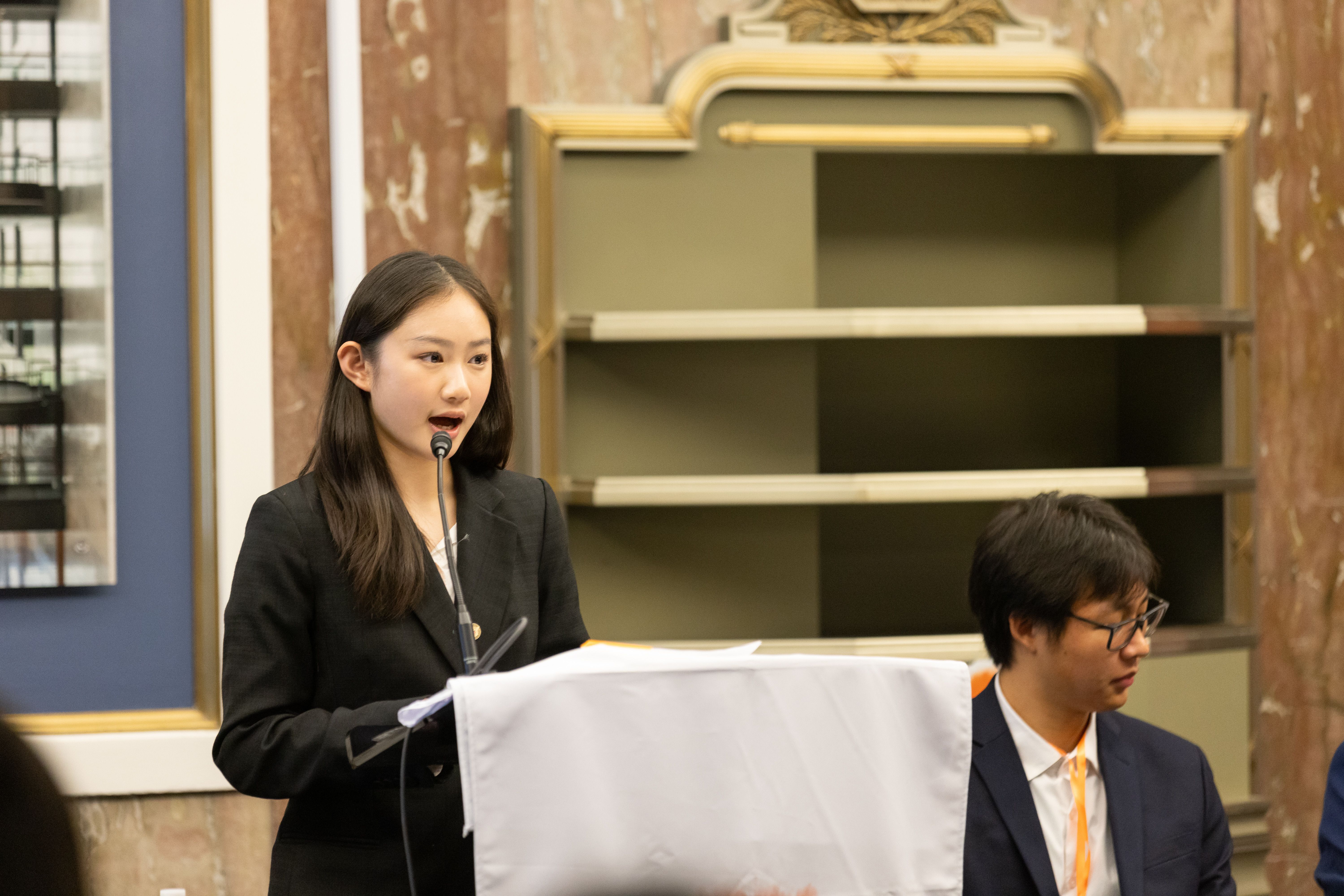
Moderated by Sophia Li, panelists Bryan Ung, Kent Zhang, and Emily Jia explored how misinformation spreads on social media. They discussed AI-generated content, echo chambers, and algorithmic bias, citing research from Stanford and MIT. Their solution: strengthen digital literacy education and promote transparency from both platforms and government.
2. Youth Sleep Deprivation: A Systemic Neglect in U.S. Education
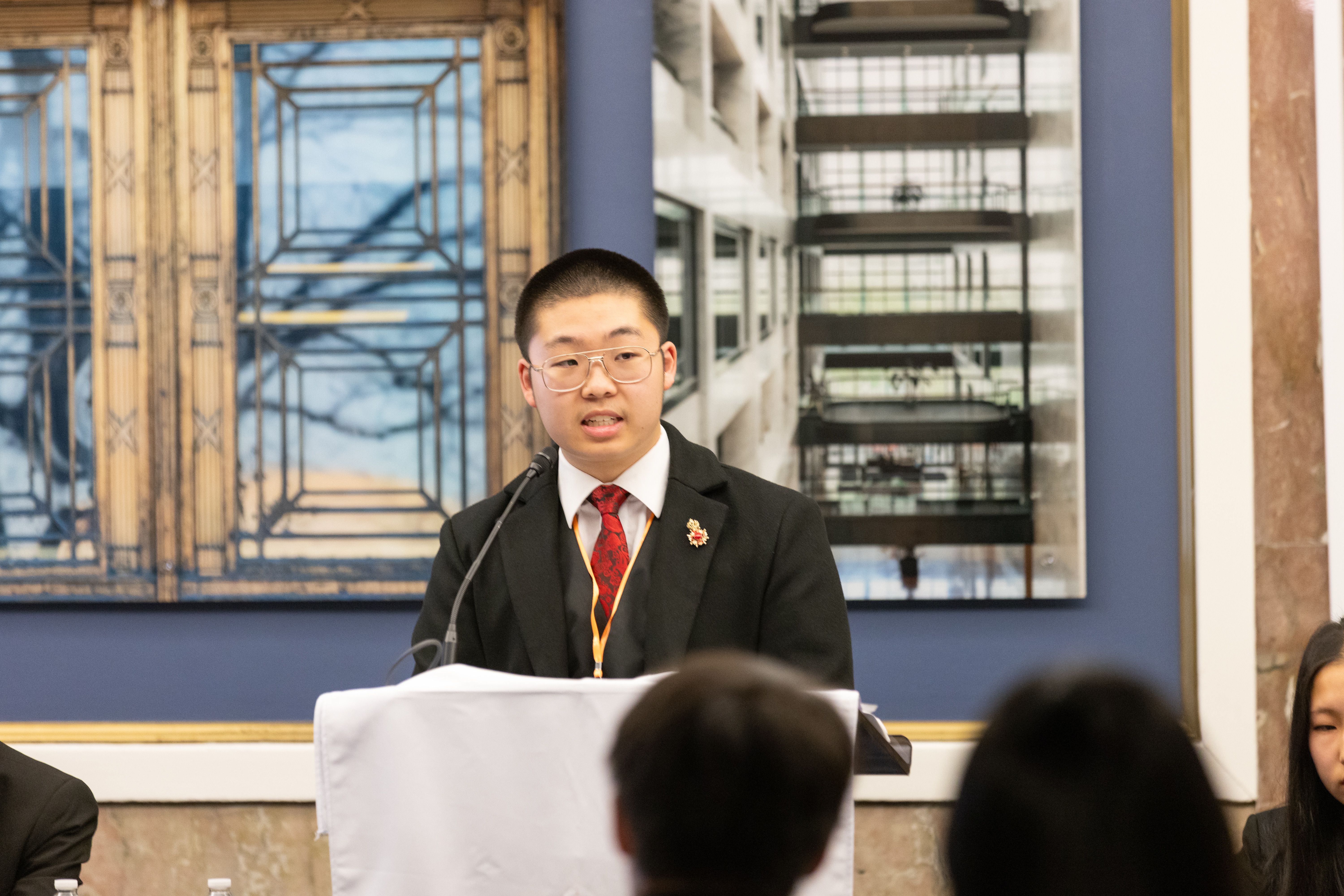
Moderated by Brian Tu, students examined the impact of early school start times, academic pressure, and mental health struggles. Using comparative data from two major school districts (MCPS and FCPS), they proposed shifting start times, improving school-home communication, and adding health and time management courses. They emphasized that sleep deprivation is not laziness, it's a policy failure.
3. Structural Education Inequity: Where You Live Determines What You Learn
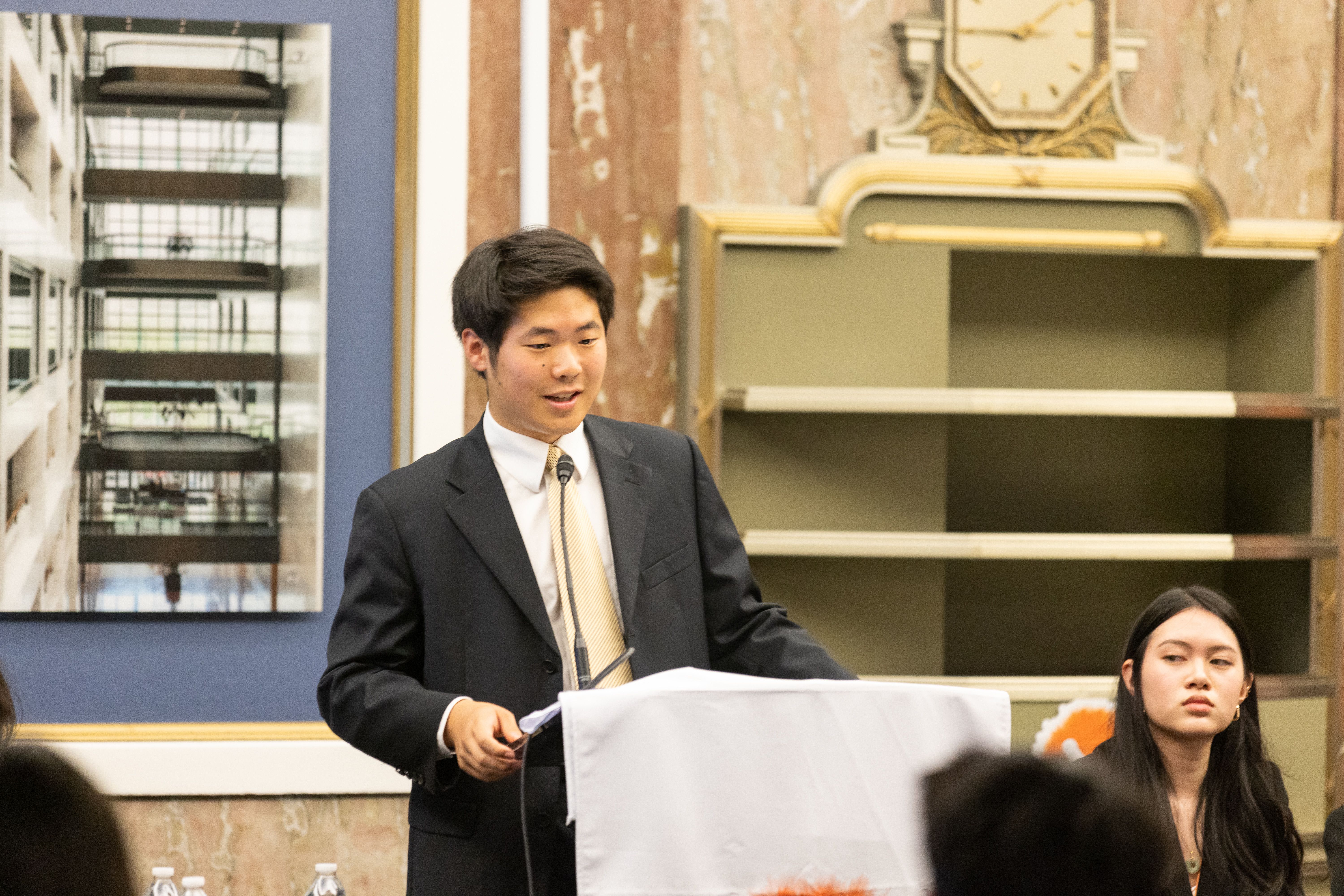
Moderated by Jeff Hou, this panel addressed disparities in resources, language access, and marginalization of low-income students. They pointed to the inequity caused by school funding models based on local property taxes. Their solution: a federal funding system based on student need, with attention to race, language, and identity.
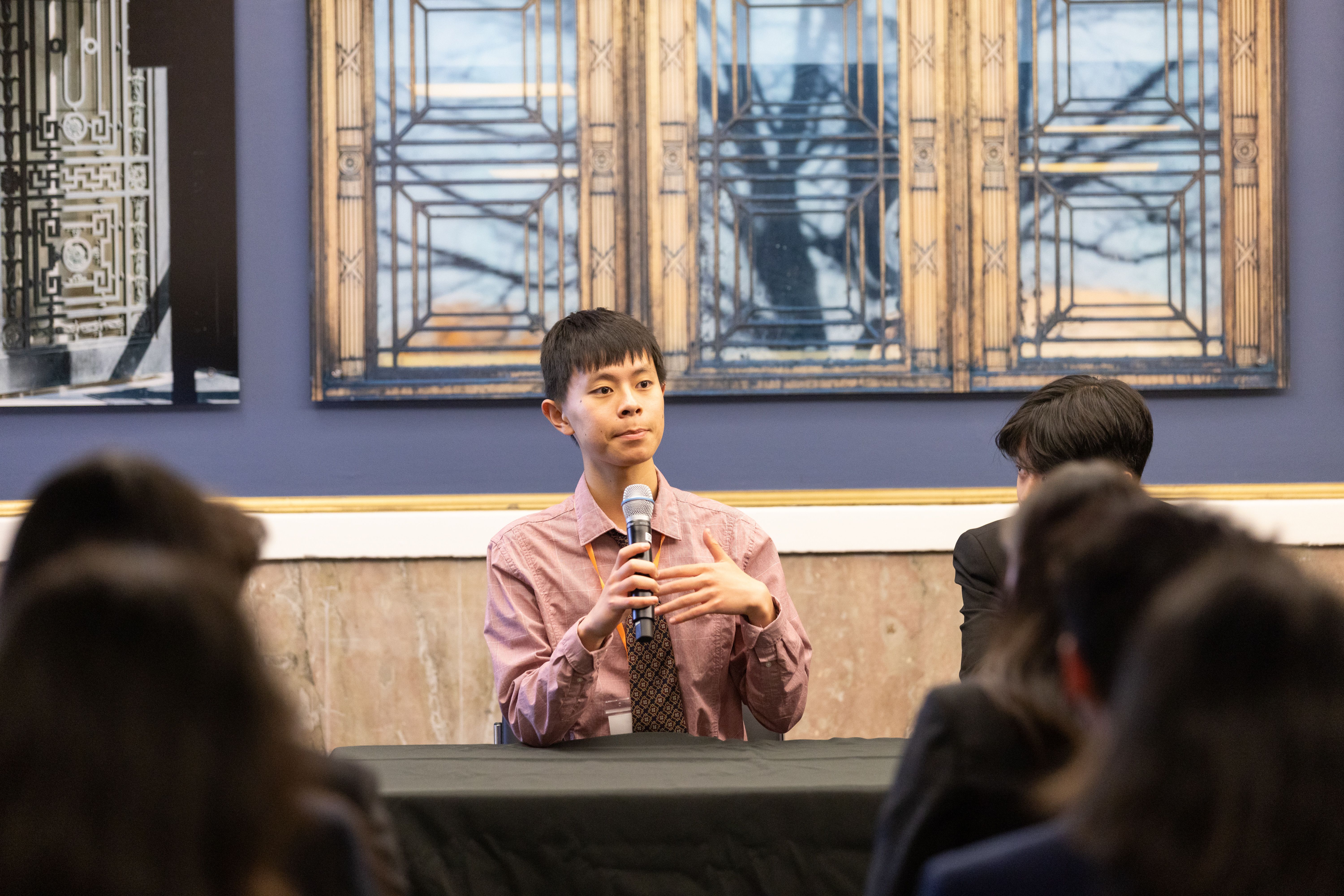
Throughout the discussion, students expressed themselves clearly, logically, and respectfully, blending structured arguments with open-minded dialogue. Their performance reflected both strong analytical thinking and collaboration.
Stephany Yu, Chairwoman of the Yuan Foundation, emphasized:
“Youth civic power needs space, but even more so, it needs direct contact with institutions.”
She expressed hopes to expand the student civic engagement program to more states and empower more AAPI families to overcome political disengagement.
“Writing isn’t just expression — it’s influence. Speaking up isn’t a privilege; it’s a responsibility.”
She also gave special thanks to Senator Chris Van Hollen’s office, noting:
“Bringing students into Congress is more meaningful than any award.”
Parents in attendance shared heartfelt reflections. One said the experience of preparing for the event (researching legislation, practicing debate) not only improved their child’s English, but sparked genuine interest in public affairs.
“My child never cared about politics. But after this competition, they started following immigration reform and the congressional agenda.”
One student shared:
“It was my first time stepping into Congress, and the first time I felt like my voice was heard.”
Another said:
“Here, we’re not just students. We’re potential policymakers.”
Congress may be the heart of the system, but civic participation is the nation’s pulse. This Yuan Foundation event was more than a competition. It was a hands-on lesson in democracy, civic engagement, and identity. Through writing, debate, and real-world dialogue, AAPI youth used their voices to address real issues.
As Stephany Yu said:
“We’re not looking for perfect answers — we’re building a generation that knows how to ask the right questions.”
Reported on-site by Yuan Media in Washington, D.C.

 Mason Chervenak
Mason Chervenak Ting Tang
Ting Tang
